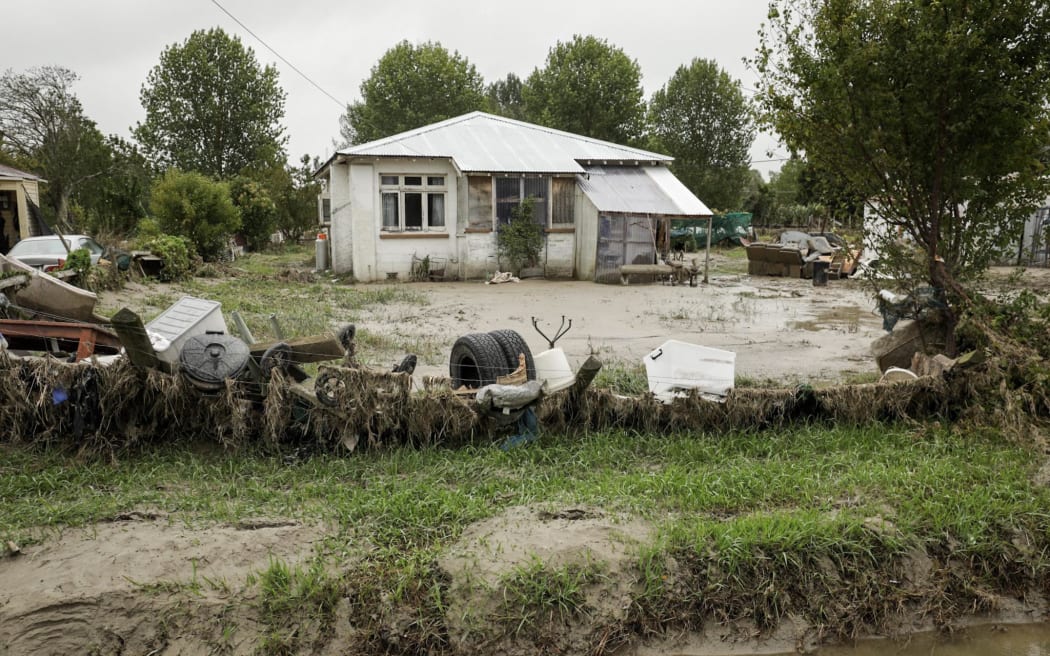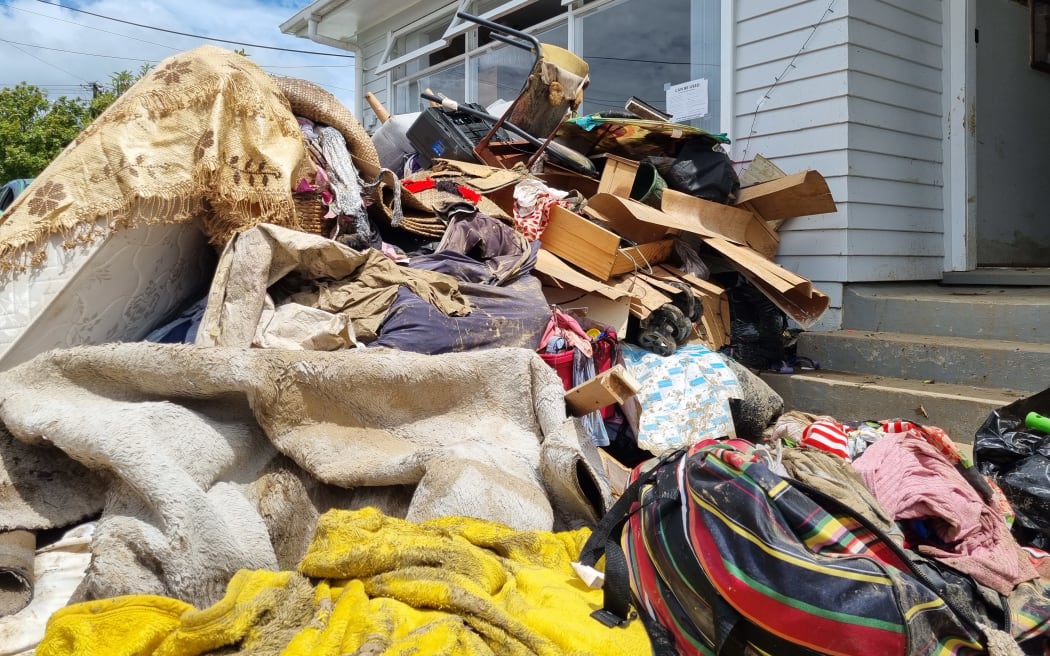
[ad_1]

Flood waters encompass a Wairoa home days after Cyclone Gabrielle wreaked large injury throughout many communities
Photo: Nathan McKinnon
Climate and well being specialists warn storms like Cyclone Gabrielle could have more and more devastating public well being penalties because the globe warms.
In an editorial within the New Zealand Medical Journal the authors, together with Māori public well being knowledgeable Rhys Jones, mentioned floodwaters trigger spikes in infectious illnesses and gastro sicknesses.
“It is too soon to determine the full health losses, but it is likely they will be substantial,” they wrote.

Dr Rhys Jones is an affiliate professor on the University of Auckland
Photo: Supplied
“Previous analysis in Aotearoa demonstrated that with each heavy rainfall occasion comes a surge in hospital admissions for youngsters with gastroenteritis.
“Hawke’s Bay is already seeing an increase in cases of leptospirosis resulting from contact with flood waters on livestock farms.”
The different authors are University of Otago environmental well being affiliate professor Alex Macmillan and University of Auckland epidemiologist and public well being drugs specialist Alistair Woodward.

Public well being specialist professor Alistair Woodward
Photo: Supplied/ Alistair Woodward
They mentioned disadvantaged populations, like these within the Hawke’s Bay city of Wairoa, might grow to be sickened as they’d little possibility however to proceed to stay in broken properties.
Storms exacerbate the already unacceptable well being burden skilled by Māori, Pasifika and different structurally oppressed communities.

This Te Karaka home in Tai Rāwhiti was flooded with mud throughout Cyclone Gabrielle.
Photo: Nathan McKinnon
They mentioned analysis confirmed flooding occasions might trigger PTSD (post-traumatic stress dysfunction) and different poor psychological well being outcomes, however the results had been usually hidden and underestimated.
Climate change would solely make extreme storms extra doubtless, and the authors mentioned it confirmed that the warming globe more and more made local weather change a well being difficulty.
The editorial mentioned land use selections – growing numbers of houses on flood plains, clearing native forests for farming and planting of unique plantation forest – had elevated susceptibility to flood occasions and are a direct legacy of settler colonialism in Aotearoa.
“The associated marginalisation of Indigenous knowledges and disruption of Māori relationships with the whenua has not only under-pinned current risks, but further undermines our ability to prevent and manage worsening threats.”

Sodden furnishings and belongings pulled out of a West Auckland dwelling after the anniversary weekend floods.
Photo: RNZ / Soumya Bhamidipati
They write that Māori worldviews and information might assist develop wholesome responses to local weather change.
“Colonial economic values, governance systems and living practices have driven the climate crisis and underpin our susceptibility to the ensuing storms,” the article mentioned.
“We must disinvest from these systems and instead centre Indigenous knowledges and restoration of relationships to address the fundamental causes of public health and ecological crises.”
[adinserter block=”4″]
[ad_2]
Source link